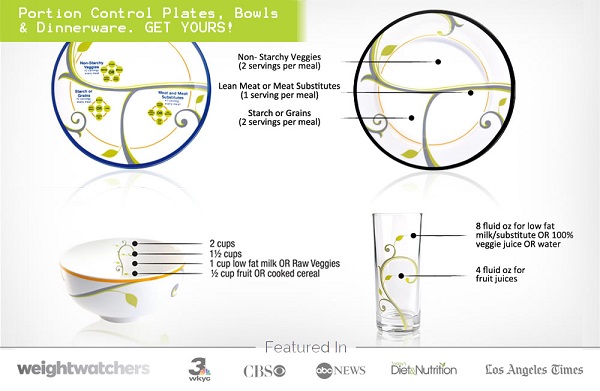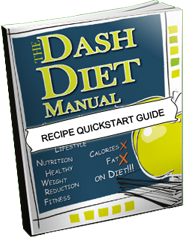If you’ve been struggling to find a natural remedy for lowering blood pressure but without success, it must be time to consider hibiscus tea. Hibiscus is widely known as an herbal supplement, and as an ingredient in various types of drinks, such as soft drinks and tea. It is known differently in various types of the world, though usually it goes by the name “roselle” or “sorrel”. In the United States, it is known as “Rosa de Jamaica” or simply “Jamaica”. Still, others may call it more poetic names such as “Rose of Sharon” or “althea”.
Hibiscus tea, sometimes known as “sour tea”, is known for its unique flavor and its myriad of health benefits. It is brewed from the crimson sepals of the plant’s flowers, and may be consumed cold or hot.
A recent study indicates that consuming three cups of hibiscus tea every day for around 6 weeks reduces SBP or Systolic Blood Pressure by as much as 7mm Hg. The study showed that people at risk of developing hypertension need to follow the routine in order to have this expected control over their blood pressure.
If a person is at risk of hypertension, it can be helpful to include the consumption of hibiscus tea to the diet. It does not only prove beneficial against hypertension but also helps the person achieve a reduction in the risk of developing the following potentially dangerous conditions:
– Stroke
– Coronary artery disease
– Poor mortality rate due to cardiovascular reasons
Hibiscus has been found to have a large amount of antioxidants, which makes it a powerful herbal supplement. It has been used to treat a wide variety of issues, from hypertension to obesity. Studies have found most of these claims to have scientific backing, as detailed by these research-proven benefits of hibiscus tea.
Benefits of Hibiscus Tea for High Blood Pressure (Hypertension)
The effectiveness of hibiscus tea in treating or reducing hypertension stems from the fact that it displays the following essential components:
1. Anthocyanins
Anthocyanins have been providing humanity with protection from multiple ailments, including significant reductions in the risk of death from cardiovascular diseases, for a long time. Fortunately, hibiscus tea contains a substantial amount of the anthocyanins, making it perfect for reducing hypertension.
The anthocyanin content of hibiscus has also been shown to help protect the liver, by reducing the toxicity induced by oxidative stress. Hibiscus extract has also been shown to reduce significant liver damage ranging from lesions and inflammation to outright liver necrosis.
Read more: https://www.sciencedirect.com/science/article/pii/S0278691500000119
The chemoprotective effects of hibiscus also extends to leukemia, another deadly form of cancer. The anthocyanin in hibiscus has been found to induce cell death in leukemia cells. A study conducted in 2004 has recommended that hibiscus be developed as a chemopreventive agent to understand better how it works to achieve its anti-cancer effects.
Read more: https://www.sciencedirect.com/science/article/pii/S0041008X04004740
It also helps reduce the chance of skin tumors. People who are constantly exposed to the sun run a risk of malignant skin growth due to UV radiation. Research has found that the protocatechuic acid (PCA) content of hibiscus, one of its many phenolic acids, helps inhibit the occurrence of skin tumors in test subjects. The acid also helps reduce the incidence of skin hyperplasia, while also reducing the formation of harmful hydrogen peroxide in the skin. This establishes hibiscus as a chemopreventive agent against potentially cancerous tumors.
Read more: https://www.sciencedirect.com/science/article/abs/pii/S030438359800010X
2. Flavonoids
Regular intake of flavonoids is crucial in providing you with the relief you need from high blood pressure. Flavonoids are known to be capable of modulating high blood pressure by restoring endothelial function. Flavonoids are anti-allergic, antiviral, anti-inflammatory, and antioxidant.
Hypertension is among the most prevalent lifestyle diseases, and hibiscus is among the many herbal products that can help reduce its impact. In a study that had test subjects drink hibiscus tea for a certain period, it was found that the tea can significantly reduce both systolic and diastolic blood pressure. After the hibiscus treatment stopped, the blood pressures of the test subjects increased again, but at a lower rate than when the treatment began. This gives an insight into the effectiveness of hibiscus as a supplement for cardiovascular issues.
Read more: https://www.sciencedirect.com/science/article/abs/pii/S0378874198001573
3. Polyphenolic compounds and Phenolic acids
It is no secret that wine polyphenols have been effective in reducing blood pressure by enhancing endothelium-dependent relaxation. Luckily, hibiscus tea has a significant amount of polyphenolic compounds, which are helpful to people struggling with high blood pressure.
Phenolic acids have also been effective in attenuating blood pressure for a long time. Phenolic compounds are obtained from industrial synthesizing as well as sourced from plants and microorganisms.
The acids from hibiscus tea are one of the most natural resource essential for blood pressure.
4. It helps manage obesity
Hibiscus has also gained a following among those who use it to manage weight gain, and a Mexican study conducted in 2007 proves there is truth to this claim. Administering hibiscus extract to the test subjects showed a significant decrease in body weight gain, with small reductions of cholesterol and triglyceride levels. The test was conducted for a period of 60 days. Another curious effect shown in the study was the fact that hibiscus treatment induced the test subjects to drink more liquids than usual, which is a healthy side-effect.
Read more: https://www.sciencedirect.com/science/article/abs/pii/S0378874107003637
5. It helps inhibit the development of atherosclerosis.
Among the many effects of hibiscus tea is the reduction of low density lipoprotein, the so-called “bad cholesterol”, in test subjects. This reduction helps reduce the chance of development of potentially-fatal cardiovascular diseases, such as atherosclerosis. Test subjects who were administered a high-cholesterol diet were found to have significantly reduced levels of atherosclerosis, as the hibiscus supplement worked in multiple ways to prevent the various factors leading to the disease.
Read more: https://pubs.acs.org/doi/abs/10.1021/jf030065w
It also helps reduce serum cholesterol. Hibiscus has been found to be helpful for those suffering from elevated cholesterol levels. In another 2007 research, test subjects were given hibiscus supplementation and showed a significant reduction of serum cholesterol after a month of treatment. The effect started in the second week of treatment, and became significant at the end of 4 weeks.
Read more: https://www.sciencedirect.com/science/article/pii/S0271531707000280
6. Vitamins & Minerals
Common vitamins have proven some of the most effective natural remedies for reducing high blood pressure.
A higher consumption of foods that are rich in vitamins helps in keeping the blood pressure low and within safe levels.
Dietary minerals are equally beneficial to hypertension. Some of the key minerals helpful in lowering blood pressure include potassium, magnesium, and calcium.
Hibiscus tea contains enough minerals that would make it easier for you to lower your blood pressure.
7. Antioxidants
Antioxidants help patients to benefit from better likelihood of achieving a healthy blood pressure. Antioxidants are equally effective in treating cardiovascular diseases, which are often a follow-up of high blood pressure when left untreated.
Hibiscus has significant antioxidant properties. Hibiscus tea, just like normal tea, has significant antioxidant content, mostly thanks to its anthocyanin levels. While the level of anthocyanins can decrease significantly depending on the processing technique and the types of storage used, it has been found that total phenolic compounds do not decline greatly as other compounds can balance the anthocyanin decrease.
Read more: https://www.sciencedirect.com/science/article/abs/pii/S0963996901001296
8. Anti-inflammatory and Anti-bacterial
Among the many benefits of hibiscus is its anti-inflammatory effects, tested in a research done back in 1996. The tests induced fever through the administration of yeast, and results showed that hibiscus extract managed to reduce the feverish effects.
Instead of taking anti-inflammatory drugs to lower blood pressure, you would be better off using hibiscus tea. The natural anti-inflammatory properties of the hibiscus tea continue to be one of its best essentials in reducing blood pressure.
Read more: https://www.worldscientific.com/doi/abs/10.1142/S0192415X96000323
It also has antibacterial properties. Hibiscus is famous in many countries as a medicinal plant, especially against diseases caused by bacteria. This is backed by a 2007 research which shows the antibacterial effects of hibiscus extract against samples of Staphylococcus aureus, Escherichia coli, and various other bacteria.
9. Diuretic properties
The diuretic properties of hibiscus tea are also essential for lowering blood pressure.
Diuretics work by causing kidneys to get rid of excess sodium and water from the system, enabling blood vessels to relax in the process of lowering blood pressure.
10. Antidepressant properties
Many drugs used in treating hypertension often increase blood pressure instead of lowering it. A natural remedy such as hibiscus tea is more effective and much safer because of its antidepressant properties.
Hibiscus tea falls within the larger category of herbal teas. With a taste that is not only tart, but also cranberry-like, there is nothing wrong in adding a few spoons of sugar to sweeten the hibiscus tea.
NOTE:
You do not have to worry in consuming the tea whether it be hot or cold, as this will not affect effectiveness in reducing blood pressure. With this information, you can expect to enjoy full benefit from these hibiscus tea blood pressure properties.
Don’t drink hibiscus if you are pregnant! Hibiscus has what is known as an “emmenagogue” effect, which means it helps induce menstruation. This can make the drink harmful for pregnant women, and also potentially harmful for those with irregular menstruation (though there isn’t enough scientific backing to prove the latter). If you are nursing, it may also be good to stop drinking hibiscus tea at least until you discontinue nursing.







 We're committed to bringing you the best in health and helping you discover the wonderful world of the DASH diet. If you're looking to control your blood pressure, hypertension, or just looking to get into great health, we're here to help.
We're committed to bringing you the best in health and helping you discover the wonderful world of the DASH diet. If you're looking to control your blood pressure, hypertension, or just looking to get into great health, we're here to help. 



